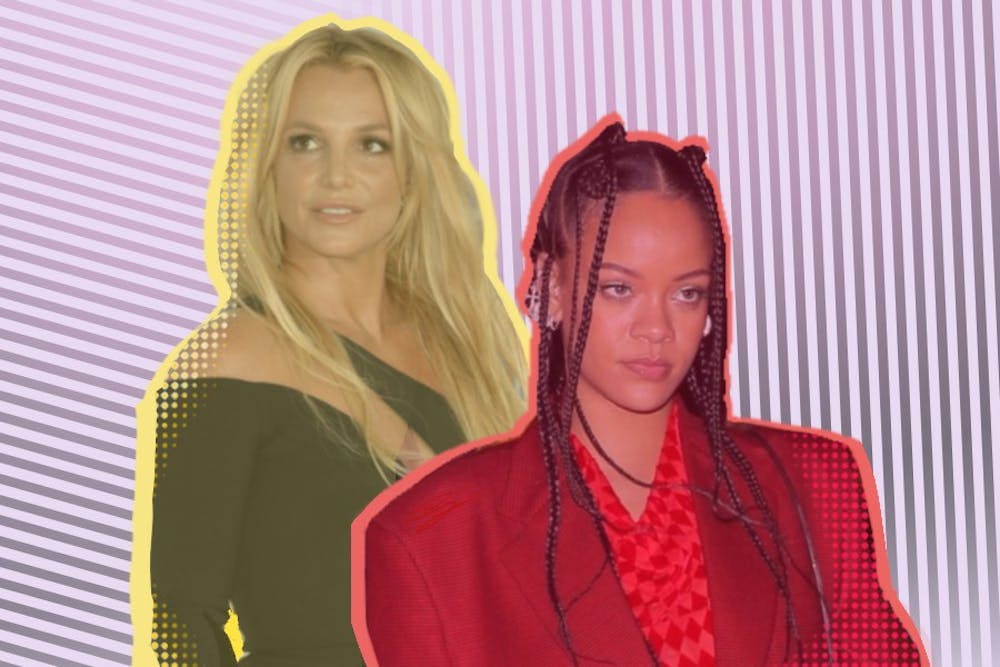On Monday, as I was walking out of my morning class, I opened my phone to a thrilling text from my sister. In all caps, one word: “RIHANNA.”
I immediately stopped in my tracks, pulling myself over to the side of the crowded path of students entering and exiting the building. My Twitter and Instagram were flooded with the news my sister had been alluding to: Rihanna was pregnant! Within thirty seconds, I had sent the story—which was a photoshoot that displayed her baby bump—to numerous friends. In our excitement, one response really jolted me. “There’s no way she’ll make any more music,” someone texted in a group chat.
In the years since Rihanna’s 2016 release of Anti, fans have been begging for another album. The singer, designer, and makeup mogul’s Instagram account is constantly flooded with requests for new music releases. Even as she celebrates her accomplishments and milestones, such as the now annual Savage X Fenty Show or her unbelievably successful makeup line (or even her baby on the way), her followers are relentless.
Rihanna, like many celebrities, has a close relationship with her fans. But they don’t actually know her or all the realms of her personal and professional life. As much as we would all love to hear it, Rihanna, quite simply, does not owe us music.
Many celebrities have faced similar issues with fans feeling entitled over their lives and personal choices. But despite the time and energy that fans put into stanning their favorite celebrities, these celebrities often aren't even aware of their existence. These one–sided relationships, also known as parasocial relationships, tend to blur the line between supporting a celebrity and entitled obsession. Within the depths of social media, the parasocial relationships between celebrities posting and their fans in the comments section can get even more extreme.
After Britney Spears won the long battle to be freed from her conservatorship, her fans—many of whom were among the first to notice that something wasn't right within the conservatorship—started to get impatient with her. In contrast to the support Spears received during her fight for freedom, her Instagram account was flooded with people begging for information about new projects and asking if there's something “seriously wrong” with her just months after her release.
Especially considering how the invasive culture of paparazzi in the 90s and early 2000s contributed to Spears' conservatorship, it's almost shocking to see fans act this way.
After fighting so hard alongside Spears for her freedom, it now seems that some of the fans aren’t satisfied with just that. However special the relationship is between the star and her extremely loyal and loving fans, they still are not entitled to anything from her. Spears is finally able to do whatever she wants, yet her fans are putting more pressure on her back to get back to work.
Before the explosion of social media, paparazzi photos, magazine profiles, and talk shows were the main channels through which we had access to our favorite celebrities. Now, however, as we are able to see and hear from them every day, it becomes easier for fans to form parasocial relationships with them and think that they are entitled to more than they actually are. However much we may love Rihanna or Britney—or anyone else—we have to remember that they don't owe us anything.

